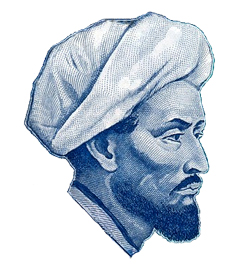
Your complimentary articles
You’ve read one of your four complimentary articles for this month.
You can read four articles free per month. To have complete access to the thousands of philosophy articles on this site, please
Islamic Philosophers
On Love
AmirAli Maleki looks at love from an Islamic perspective.
What’s more important than everyday life in our world, where philosophical issues such as love, justice, freedom, and are acting upon us in the most vivid way possible? The most important element for philosophy is the need for depth and precision concerning our everyday lives and surroundings. In this, philosophy is like a shopper who stands in front of a shelf in the local supermarket. Every time he studies that shelf he finds new things that might be of use to him. That shelf is our life, and everything in philosophy depends on this carefulness in studying what might otherwise be routine. Therefore, we should learn to philosophize at the peak of being alive; and that time is every morning when we wake up.
Islamic philosophers paid a lot of attention to daily life, and of course they thought about the most basic facts of life according to the conditions in which they lived. Love is one of those facts – perhaps especially so when it seems like it’s present on every street in town and you can’t escape it (especially when you see a couple kissing at a bus stop). So perhaps we should think about love more carefully. And in general, when one philosophises about love, even the most philosophical language sounds more poetic than any poem.
Islamic philosophers always express elements of religion in their thought, because they saw their duty as being to deeply review religious issues. In this regard, al-Farabi (c.872-951 CE) sees love as a manifestation of God, and indeed, argues that it is through the love within God that all the creatures in the world came into being. As he writes: “Love is the origin of the emergence of creatures and the reason for the immortality and survival of existence.” Basically, al-Farabi’s belief is that if you think you fell in love with your classmate, you in fact originally fell in love with God; and now, through this love of God, you are allowed to invite your classmate to go to the cinema with you, possibly more.

al-Farabi contemplates love
Of course, it was not only al-Farabi who saw love as basic to existence. Following his path, Avicenna (Ibn Sina, 980-1037 CE) also introduced love as a weapon to help surviving in this world. In his treatise titled Love, Avicenna describes love as an element that exists in all beings in the world, which leads them to love life. He also sees love as the source of all goodness, and even goes as far as saying that every person starts by falling in love with him or herself! Avicenna also believes that loving and being loved are essentially the same thing, and can exist in the personality of any person, so that if someone falls in love, he completes his own personality. So next time you look at your partner, be aware that you’re also looking at a part of yourself.
Mulla Sadra (1571-1641 CE) sees love as not only based in romantic or sexual relations, but as incorporating a strong affection that connects beings together. For him, love is a beautiful thing that makes him depend on his lover and complete his personality through them. Mulla Sadra considers this beautiful matter so important and noble that he says it is impossible to escape from it. For this reason, Mulla Sadra considers love to be a form of ‘awareness’ that can exist in all creatures. This consciousness can be instinctive or voluntary. But perhaps the important thing is that love is attracted to goodness and beauty in any form.
Muhammad Husayn Tabataba’i (1903-81 CE), one of the greatest contemporary philosophers of Islam and Mulla Sadra commentators, finds the roots of Mulla Sadra’s ideas in a verse from the Qur’an: “The perfection of love belongs to God” (Ch. Al-Baqara, Vs. 165). Tabataba’i says that Mulla Sadra’s view of love – specifically, of it being a sort of consciousness inside all beings – is present because, as the Qur’an says, God has all degrees of love in himself, and since he created us, he has bestowed his love and affection on all of us. So maybe the evidence and truth of God’s existence within us is our desire for love.
The essence of love for Islamic philosophers goes back to the root of the word ‘love’ in both Arabic and Persian, which is from a plant that wraps around a tree and climbs up it, which in English is called ivy. This is the reason why Suhrawardi (1154-91 CE) considers love to be a great affection that makes a person fall in love by rising and wrapping around their whole life.
I too think it is necessary for the plant of love to wrap around our entire lives, to drown us in its breath. But what’s your opinion? Can love be the whole of life?
© AmirAli Maleki 2024
AmirAli Maleki is a philosophy researcher and the Editor of PraxisPublication.com. He works in the field of political philosophy and hermeneutics.






